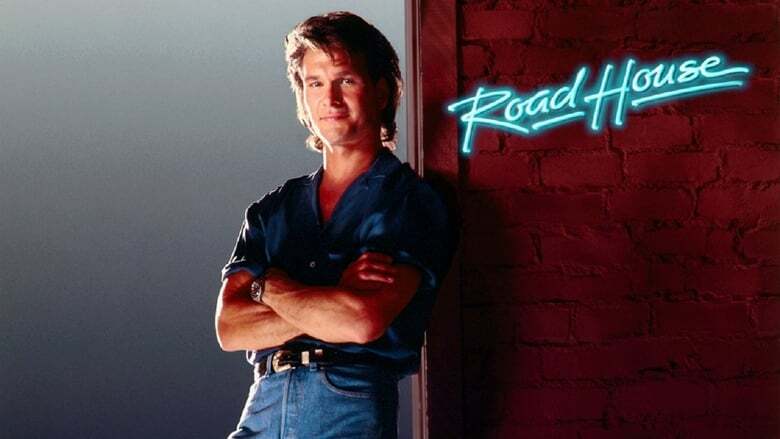Fifteen odd years ago I lived in a building of studio apartments. One of my neighbors (we’ll call him “Jon” because that was his name) was an older gent with a speech impediment, who always wore high-waisted jeans with a button down tucked in, round glasses, and had perfectly coifed white hair. Jon was a talker.
He told me more than once he idolized two men: Elvis Presley and Patrick Swayze.
Now that I’ve finally seen Road House, I can see why. I won’t be putting him on a pedestal, well, ever. But I can see why Jon thought Swayze was the epitome of cool. The guy had a Paul Newman-esque vibe that’s undeniable, and Road House is the perfect showcase for it.
Even if his character and the movie are kinda dumb.
Road House was released in 1989 and the story is as straightforward as you can get. Dalton (Swayze) is an elite bouncer called a “cooler” who is hired to go the rowdiest road house in history and bring order. Once in town he finds corruption, love, and the necessity of facing his demons. It’s basically a “man comes to town” story like Yojimbo and countless westerns. In fact, most of the characters are named after western heroes and villains.
Obviously, by this time the western movie craze was long past. But the good tropes never die.
This may be one of the last mainstream rural action movies with an everyman hero. For a while in the 70’s Burt Reynolds and Clint Eastwood owned the genre, playing anti-authoritarian good ol’ boy truckers in middle America with dog or orangutan sidekick, respectively. True, they never had to deal with a guy who’d drive a monster truck through a Ford dealership.
But if the budget had been there they would have.
By the 80’s the everyman good ol’ boys had given way to action stars like Chuck Norris, Jean-Claude Van Damme, Arnold Schwarzenegger, and Sylvester Stallone. As Nick de Semlyen notes in The Last Action Heroes, with the exception of Stallone (the closest thing to my Hollywood idol, sorry, Jon), they were martial artists and bodybuilders who learned to spit out lines.
Swayze’s casting in Road House was at least an experiment, and at most signaled a change.
Today Hollywood seems to have decided that it’s preferable to hire actors and teach them martial arts, and mayyybee juicing them to bodybuilder proportions. Had Road House been made ten years earlier Chuck Norris may have played Dalton and Road House would be just another low-budget, drunken Saturday night movie, and not the popular cult film with an upcoming remake that it is today. Much of that can be credited to casting pretty-boy Swayze, who could to some degree act and spin-kick at the same time. Maybe he couldn’t act well, but he was still a step up from the old guard.
Road House has foot in the past and one flying into the future.
I also want to draw attention to the movie’s philosophy of violence. When we’re introduced to Dalton he’s trying to avoid a fight. This is more than just a “save the cat” moment, it also shows him living his rules before he explains them. “One, never underestimate your opponent. Expect the unexpected. Two, take it outside. Never start anything in the bar unless it’s absolutely necessary. And three, be nice.” Of course, in that first interaction he breaks rule one and gets stabbed.
But let’s not dwell on that.
“I want you to be nice until it’s time to not be nice,” is the main principle. In When Violence is the Answer, an excellent book on violence theory, Tim Larkin covers much of what’s portrayed in this movie. He offers tips on how to avoid fights and, if all else fails, win them. “Take the biggest guy in the world, shatter his knee and he’ll drop like a stone” could be a line from the book.
As for the remake…
I watched the trailer as soon as the movie was over, and if it wasn’t trying so hard to be associated to the original I might be interested. Jake Gyllenhaal isn’t as cool as Patrick Swayze. No, he’s a nutjob. I guess it might be an amusing curiosity. So while I don’t exactly regret not seeing Road House sooner, I could easily watch it again.

























